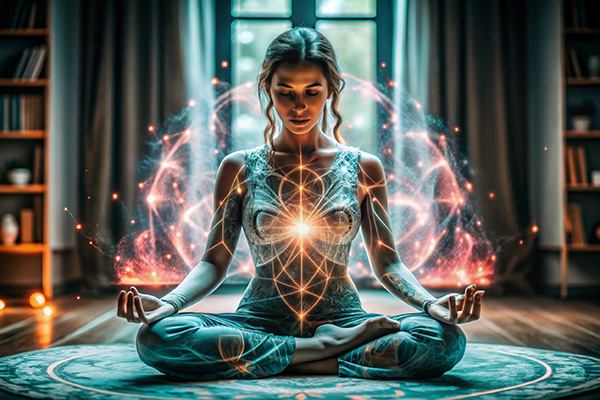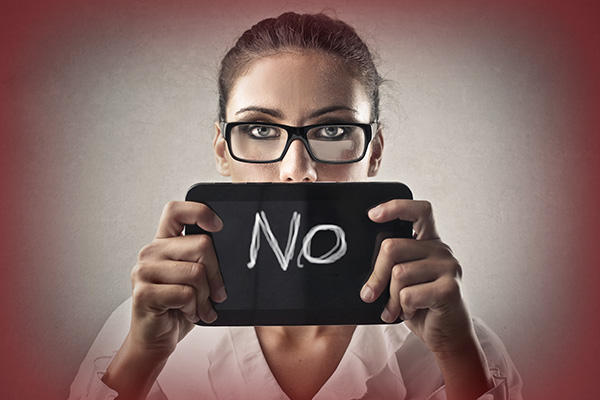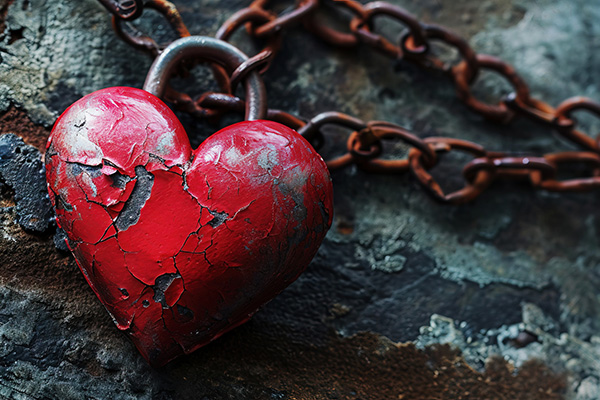The Empowered Empath’s Guide To Spiritual Self-Care
 Empaths, sensitives and intuitives tend to be givers. Loyal, sometimes to a fault, and fiercely protective of those they care about… moving at lightning speed whenever called upon.
Empaths, sensitives and intuitives tend to be givers. Loyal, sometimes to a fault, and fiercely protective of those they care about… moving at lightning speed whenever called upon.
So, when I say to an empath that it may be time to put themselves first, the response is often mixed.
But, if putting yourself first seems too selfish or too difficult, try something simpler: at least put yourself on an equal footing with those you love and care for.
For many sensitive and highly intuitive people, self-care must be an acquired behavior… and it’s a big one. Empaths intend to be selfless, to help, heal and facilitate those they care about. Wonderful!
But remember, if this is your goal, then begin with yourself. The stronger, healthier and happier you are then the more effective, nurturing and supportive you can be to those around you.
Putting yourself first doesn’t mean that you are doing only what you want to do all the time, and it doesn’t mean that you are suddenly going to ignore those you care about.
What it does mean is making it a priority to take care of your own physical, mental, emotional and spiritual needs. This can be a tall order and quite the task for some empaths. Don’t wait until you are in a meltdown… frustrated and snapping at everything and everyone around you, with little or no provocation.
Getting To The Core Energy Of The Matter
 Relationships and life situations can take many confusing twists and turns and it’s easy to get lost in the behavior or chaos of the moment.
Relationships and life situations can take many confusing twists and turns and it’s easy to get lost in the behavior or chaos of the moment.
One of the many benefits of a good psychic reading is the clarity it can bring.
Getting to the heart of the matter involves the psychic advisor looking at your core energy. Your core energy is the root of you. It is the true you, complete with your innate gifts, skills and talents.
Layered on top of that are your experiences, challenges, fears, childhood wounds and past relationships gone wrong. The more scars there are on this layer, the thicker it is and the more it impacts your choices, decisions and behavior.
A psychic reader will use her skill set to discern what is really going on underneath for all parties involved. The psychic will get ‘inside’ and find out what is limiting the success of the relationship, or situation.
This is why an advisor may often bring forward information about you, or the subject, that you did not necessarily ask for, but is relevant to increasing your understanding and finding resolution to your situation.
Information always comes forward for a reason during a reading. Cutting through what is happening on the surface, the fight, the issue with family or work, allows the advisor to share information that creates long-term solutions, greater understanding and awareness of what others are thinking, feeling and why they are acting a certain way.
Learning To Say Yes To Yourself
 It is in the empath’s nature to say ‘yes’ to just about anything requested of them. It goes against our grain. For some of us, saying ‘no’ also brings on fears of rejection, abandonment or letting someone down when it may be important to support them.
It is in the empath’s nature to say ‘yes’ to just about anything requested of them. It goes against our grain. For some of us, saying ‘no’ also brings on fears of rejection, abandonment or letting someone down when it may be important to support them.
Rather than finding an excuse, or simply telling the truth, many of us give in and just go along. It just feels easier in the moment, and even validating or satisfying.
But when you end that phone call, or respond to another text, and you feel anxious and panicked, while you start going over all the other things that will have to fall to the wayside by saying yes, then you really are saying no to yourself.
Self-care requires that we sometimes say no to others, in order to say yes to our own well-being and peace of mind. Consequently, the person that you said yes to won’t be getting the best of you. If you have said yes at your own expense, then what you bring to the table for that person is stress and anxiety. Your best self will not be fully present.
Saying yes, when you really want to say no, can also lead to resentment that you then attach to the person who asked for your assistance.
Here the responsibility lies with ourselves. We teach people how to treat us and many times we don’t give others enough credit for understanding when we say no. Most people would rather hear. “No thanks, that time doesn’t work for me” or “I have other commitments,” instead of having to sense a half-hearted or less than enthusiastic yes.
The Empath’s Sacred Gift Of Compassion
 Being an empath is more than just having a high sensitivity to the suffering of others. It is also the sacred gift of compassion. Empaths do not only perceive other people’s pain, but we also want to soothe, heal, and uplift them. These twin gifts of discernment and compassionate action are inseparable.
Being an empath is more than just having a high sensitivity to the suffering of others. It is also the sacred gift of compassion. Empaths do not only perceive other people’s pain, but we also want to soothe, heal, and uplift them. These twin gifts of discernment and compassionate action are inseparable.
I have yet to meet an empath who doesn’t feel the calling to alleviate suffering in some way. In a world that so often feels cruel and chaotic, our tender hearts are now needed more than ever.
Compassion, both inward and outward, is a powerful force. It can transform relationships, heal roots of insecurity, and reshape the texture of our inner lives.
In leadership settings, compassionate responses consistently foster trust, deep connection, and lasting loyalty. Harsh reactions, on the other hand, often erect walls and breed resistance.
When someone feels seen, supported, and deeply cared for, their loyalty and dedication follow naturally. This principle applies not only in professional spheres but in every relationship we nurture.
I’ve come to see self-compassion as just as vital as the compassion we extend to others.
Empaths especially can be our own harshest critics. We measure ourselves against external standards and comparisons, often coming up short in our inner dialogue. But offering ourselves a warm, non-judgmental embrace opens new doors: to deeper confidence, heightened clarity, and a grounded sense of worth that doesn’t depend on outperforming someone else.
The Empath’s Guide To Toxic Friendships
 Our friends are a beautiful and enriching part of our lives. In some cases, they even become our chosen family through the bonds of mutual caring and shared life experiences.
Our friends are a beautiful and enriching part of our lives. In some cases, they even become our chosen family through the bonds of mutual caring and shared life experiences.
Healthy friendships are built on a foundation of balance. They’re marked by mutual support, trust, loyalty, acceptance, and honesty, all with a touch of compassion. But for the empath or highly sensitive person, friendships can sometimes be a bit of a rollercoaster.
We might feel like we’re always giving and giving, and sometimes we might even feel drained. It can be hard to know when to draw the line with someone who might be taking advantage of our energy.
Friendships can be so many different things, and it’s important to remember that not all of them are the same. They range from casual acquaintances to deep, intimate bonds we form with those we call our “besties.”
It’s so important to have a close friend you can trust with your most private fears, dreams, and vulnerabilities. But, sadly, this isn’t always the reality. If you’re the kind of person who is sensitive to the feelings of others, you know how hard it can be when you’re betrayed or disappointed by someone close to you. It can feel like the saying “keep your enemies close” is true in these situations.
Some of us are more outgoing and have a large social circle, while others are more introverted and have a small social circle. Empaths can fall into either category. Regardless of which category an empath falls into, it is wise for us to exercise discernment.
Honoring Yourself In Difficult Family Relationships
 Family dynamics can be tremendously complex for many of us. These relationships are multilayered and deeply ingrained, often playing out across generations.
Family dynamics can be tremendously complex for many of us. These relationships are multilayered and deeply ingrained, often playing out across generations.
Many of my clients seek psychic insight about family matters. After matters of love and romance, and then business or career, family is often the most emotionally charged subject.
In readings, especially with empaths, intuitives, and highly sensitive individuals, I hear countless stories of family pain. Many carry a sense of never belonging, of being misunderstood or scapegoated.
These emotional burdens are often the heaviest that people bear because they are tied to the people they loved first and still love, despite the hurt.
When control or finances are interwoven into the family structure, the complexity of these relationships multiplies.
For many, family represents a love-hate relationship or a deep bond that carries deep wounds. While we cannot choose our family, we do have a say in how we interact with them, how we respond, and whether we continue to engage.
Severing family ties is a significant and often heartbreaking decision that is never taken lightly. By the time someone considers taking this step, the drama or emotional abuse has often been ongoing for decades and is sometimes rooted in a vividly painful childhood.
What To Do When A Lost Love Lingers
 Many of the readings I do are about love and relationships, and a good percentage of them are about past relationships that continue to linger in the hearts and minds of some callers.
Many of the readings I do are about love and relationships, and a good percentage of them are about past relationships that continue to linger in the hearts and minds of some callers.
For some people there are often constant, even obsessive thoughts about a former partner, a longing for a second chance, or bitterness and regret for time and energy that now seems wasted. The longer and more intense the relationship, the more battle scars and wounds there often are.
If it was a soulmate or twinflame connection, the aftermath can be especially devastating. The relationship has ended and the connection has been severed in this lifetime. This can be very painful. You know you gave it your all. You hung in there for years, or you made heroic efforts to ensure the survival of the relationship, but it did not work out as you had hoped.
If you are highly sensitive and intuitively aware, you may still be picking up the energy of your former partner, which can be very painful, disturbing and disruptive. Unresolved energetic connections can keep you stuck in a repetitive cycle of repeating the same pattern with that person, or put you on hold, unable to move forward in peace and confidence.
I am often asked, “Is it really over?” or “Does he still have feelings for me?” Of course, the answer depends on the unique circumstances.
